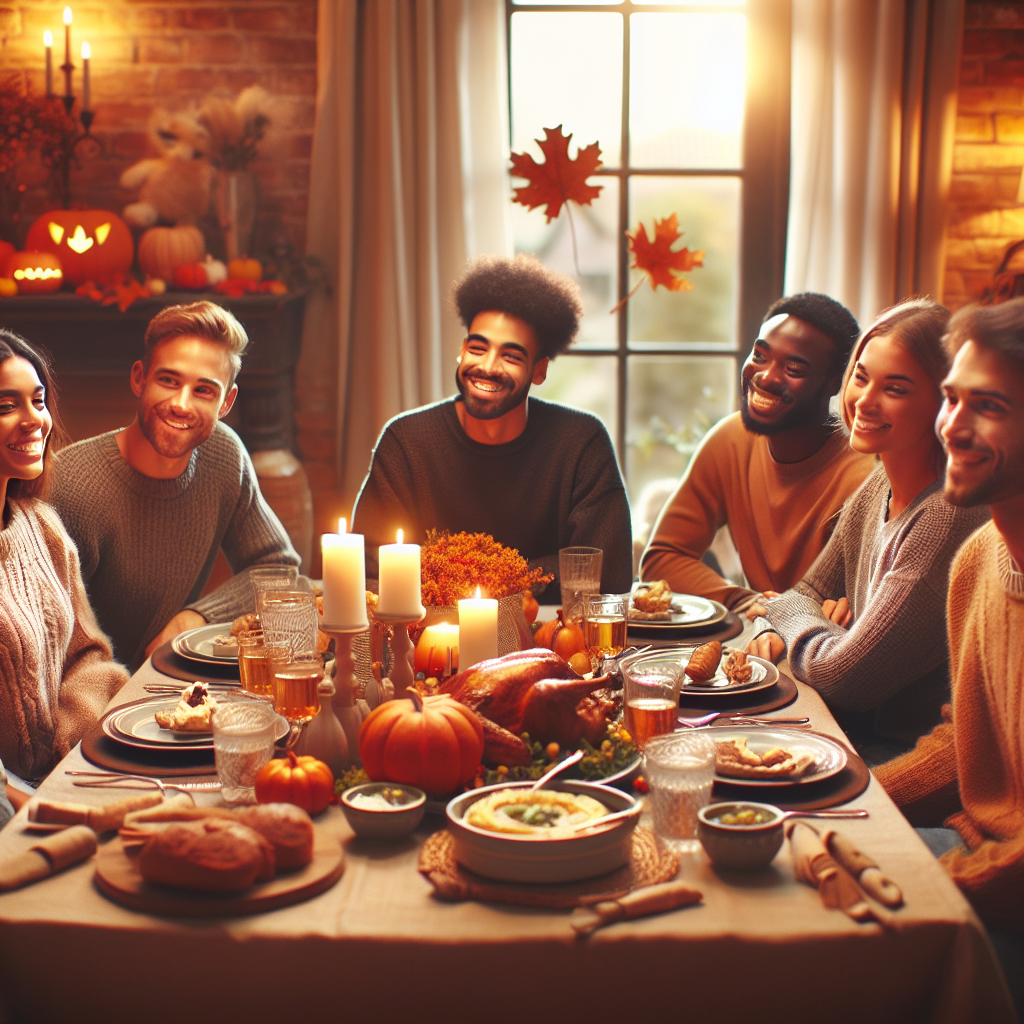
Bridging Political Divisions through Psychology: Insights for This Thanksgiving
As Thanksgiving approaches and families gather around the dinner table, the recent presidential election still looms large in the minds of many Americans. The polarized political climate could potentially lead to challenging conversations. However, according to experts, the solution lies not in politics but in psychology. Judy Woodruff’s recent discussion with social psychologist Keith Payne sheds light on how understanding social identities can offer pathways for overcoming political divides.
The Role of Social Identity in Political Divisions
Keith Payne, author of “Good Reasonable People: The Psychology Behind America’s Dangerous Divide,” explains the deep connection between our sense of self and the groups we identify with, such as political, racial, and religious affiliations. He argues that:
- Our self-esteem and self-worth often stem from our group memberships.
- These affiliations significantly impact our political beliefs and identities.
- Understanding these psychological roots is essential for bridging divides.
Payne’s insights suggest that while individuals may seem entrenched in their political ideologies, it is often their social identity that drives them. This understanding encourages engagement with others beyond surface-level political discourse.
Personal Journeys through Political Landscapes
Payne’s own experiences growing up in a conservative family in rural Kentucky illustrate the complexities of political identity. His trip home from college was marked by intense debates with his family, showcasing how deeply ingrained political views can challenge familial bonds yet still coexist with love and respect.
Voices from Diverse Political Backgrounds
Judy Woodruff’s program also captures perspectives from individuals like Jason Howard, a bar owner with conservative roots, and Jasmine Gailliard, a college student with Democratic leanings. Their stories highlight:
- How upbringing influences political affiliations.
- The emotional weight carried by political identities.
- The challenges faced in reconciling diverse views in personal relationships.
Understanding Race and Politics
Payne discusses how racial identity often plays a central role in American politics. He points out historical and systemic factors that have shaped the current political landscape, noting that:
- Historical segregation and inequality correlate with modern voting patterns.
- Biases and assumptions about racial groups can profoundly influence political decisions.
This acknowledgment of race’s impact encourages constructive dialogue and introspection, fostering a better understanding of underlying influences on political behavior.
Strategies for Navigating Political Conversations at Thanksgiving
Payne offers practical advice for those seeking to maintain family ties without avoiding substantive issues:
- Ask questions: Focus on values, emotions, and identities behind people’s views.
- Focus on common ground: Identify shared values and aspirations for the future.
These strategies aim to reframe discussions from arguments to conversations, emphasizing mutual respect and understanding.
The Ongoing Challenge of Political Division
The emotional toll of political division is evident in personal anecdotes shared by Howard and Gailliard. While some manage to set aside political differences during family gatherings, others find it more challenging. This highlights the broader societal challenge of reconciling these divisions.
A Desire for Unity
Despite the current climate, there is a widespread yearning for unity and a return to civility in political discourse. Payne’s work invites Americans to explore psychological insights as a way to heal and bridge these divides.
As families come together this Thanksgiving, the insights offered by Judy Woodruff’s series, America at a Crossroads, serve as a valuable resource for those seeking to understand and connect across political lines. By leveraging psychology, there is hope for a more cohesive and understanding society.
Sources: https://www.pbs.org/newshour/show/exploring-how-psychology-can-help-bridge-political-divisions-this-thanksgiving

